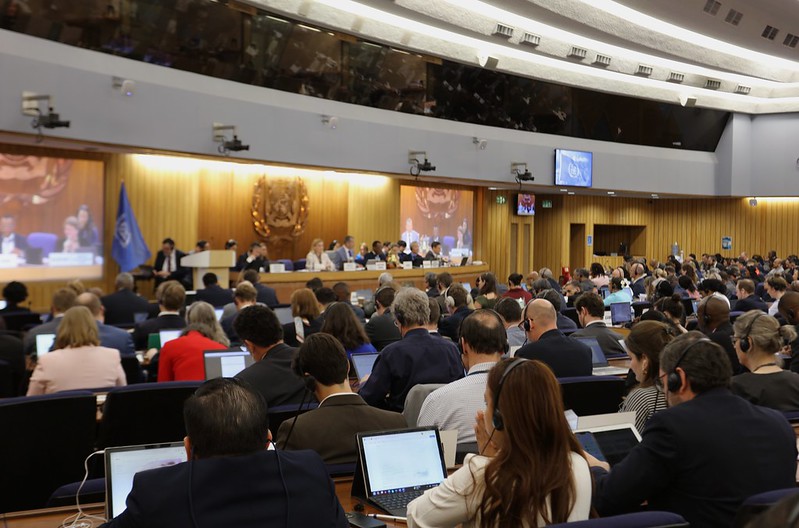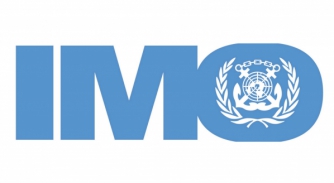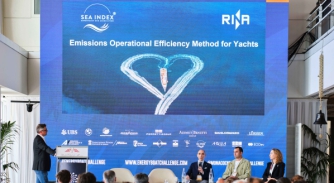IMO sets new global net-zero shipping rules
The IMO’s new emissions framework targets shipping but the likely impact on superyachts in the future may be profound…

The International Maritime Organization (IMO) has passed landmark regulations aimed at achieving net-zero greenhouse gas emissions by 2050, marking a significant turning point that may soon affect superyacht operations globally. Although the immediate impact targets commercial vessels, superyachts, particularly those over 500gt or operating internationally, should be ready for change.
Approved during MEPC 83 in April 2025, the draft regulations introduce a mandatory global fuel standard and a new global pricing mechanism for greenhouse gas emissions. Set to be formally adopted later this year and enforced from 2027, these measures will become the first emissions pricing system applied across an entire global industry. Initially, they will apply only to vessels over 5,000gt, responsible for approximately 85 per cent of maritime emissions.
Although most yachts currently fall below this threshold, IMO regulations historically scale downward, as seen with existing MARPOL standards. Yachts operating commercially or frequently navigating international waters could soon face heightened scrutiny from port authorities, Flag states and charter clients.
Closing the meeting, IMO Secretary-General Arsenio Dominguez commended the spirit of cooperation and commitment demonstrated by member states this week. He stated: “The approval of draft amendments to MARPOL Annex VI mandating the IMO net-zero framework represents another significant step in our collective efforts to combat climate change, to modernise shipping, and demonstrates that IMO delivers on its commitments. Now, it is important to continue working together, engaging in dialogue and listening to one another, if we are to create the conditions for successful adoption.”
Understanding the IMO's new measures
The framework revolves around two core pillars: a Global Fuel Standard and a Global Economic Measure. The fuel standard states vessels must reduce greenhouse gas intensity, using a well-to-wake calculation approach, which accounts for emissions from fuel production to consumption.
The economic measure introduces financial penalties for exceeding fuel intensity thresholds, requiring the purchase of remedial emission units. Conversely, vessels performing better than the required standard can earn surplus units or financial rewards. Funds generated through these measures will feed the newly established IMO Net-Zero Fund, aimed at supporting global maritime decarbonisation initiatives, particularly in developing countries.
The likely impact on superyachts in the future
The introduction of these measures could accelerate yacht builders and owners towards embracing alternative fuels, biofuels, hybrid propulsion systems and advanced energy efficiency technologies. Some leading shipyards and yacht operators are strategically investing in green technologies, ensuring their projects align with imminent regulatory changes.
The financial incentives and penalties introduced by the IMO will probably influence investment decisions, refit strategies and the relationships between yacht owners, shipyards and suppliers. Sustainable practices may become a key factor determining charter appeal, resale values and port access.
A change is underway
Formal adoption of the IMO's Net-Zero Framework is expected by October 2025, with enforcement to begin in 2027. For yacht builders facing multi-year build cycles and owners investing in extensive refits, the timeline is more immediate than it appears.
This development underscores a significant shift: environmental consideration is rapidly becoming non-negotiable for the superyacht industry. Rather than waiting until compliance becomes mandatory, proactive engagement today is potentially the most strategic and ultimately cost-effective choice.
For a sector that prides itself on innovation, it will be interesting to see who can adapt the earliest and most effectively to the IMO's new ruling.
NEW: Sign up for SuperyachtNewsweek!
Get the latest weekly news, in-depth reports, intelligence, and strategic insights, delivered directly from The Superyacht Group's editors and market analysts.
Stay at the forefront of the superyacht industry with SuperyachtNewsweek
Click here to become part of The Superyacht Group community, and join us in our mission to make this industry accessible to all, and prosperous for the long-term. We are offering access to the superyacht industry’s most comprehensive and longstanding archive of business-critical information, as well as a comprehensive, real-time superyacht fleet database, for just £10 per month, because we are One Industry with One Mission. Sign up here.
Related news

Having a seat at the table
Sustainability Editor Megan Hickling reports on the 82nd session of the Marine Environment Protection Committee, held 30 September to 4 October, 2024
Crew

New CO2 emissions tracking tool
Sea Index® and RINA are collaborating on the next addition to their methodology, focusing on the life-cycle impact of fuels, from conventional to biofuels
Crew

New industry body for maritime cybersecurity launches
The International Maritime Cyber Security Organisation launched to raise the standard of cybersecurity risk assessment across the maritime industry
Crew
NEW: Sign up for
SuperyachtNewsweek!
Get the latest weekly news, in-depth reports, intelligence, and strategic insights, delivered directly from The Superyacht Group's editors and market analysts.
Stay at the forefront of the superyacht industry with SuperyachtNewsweek



